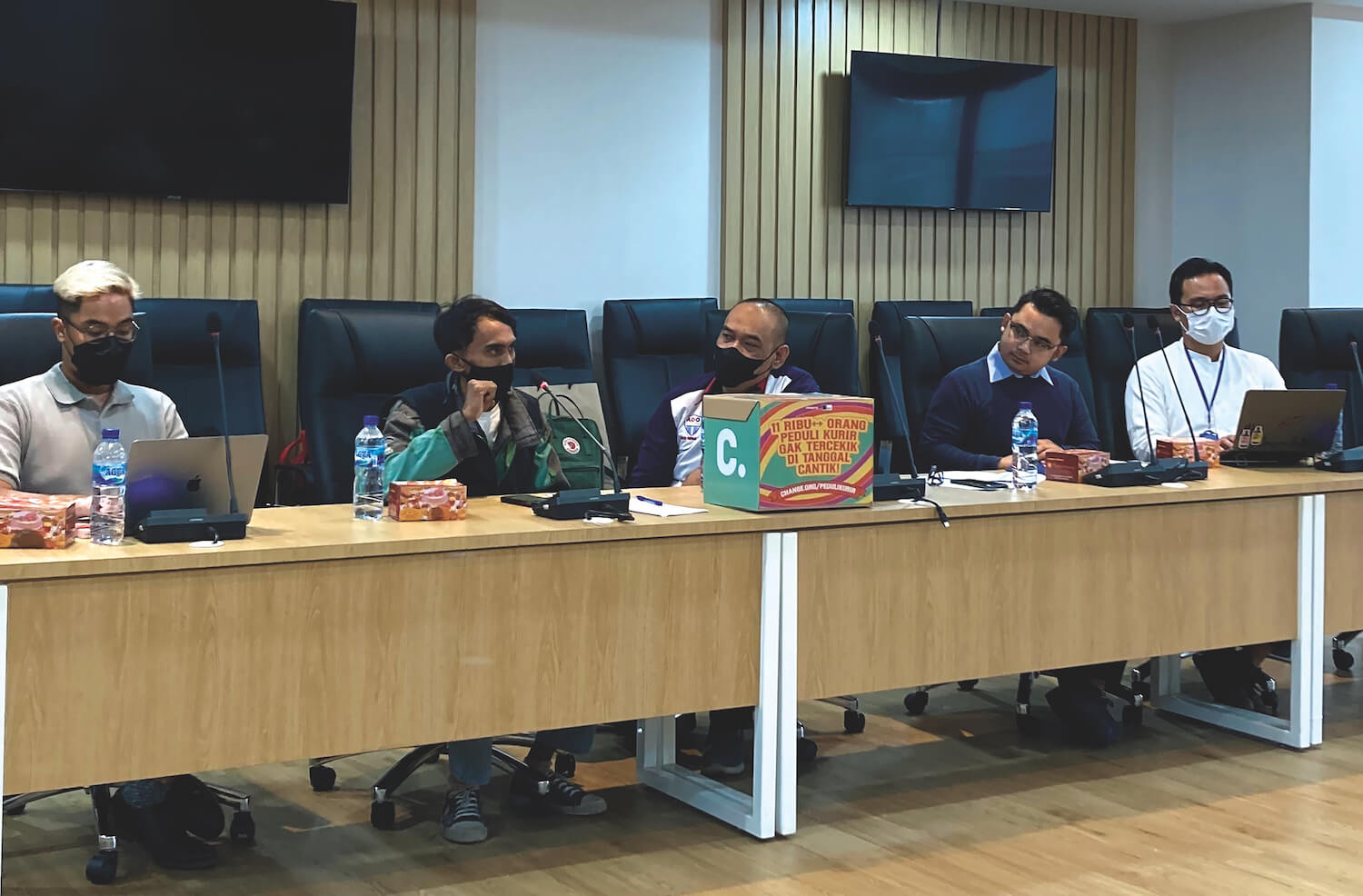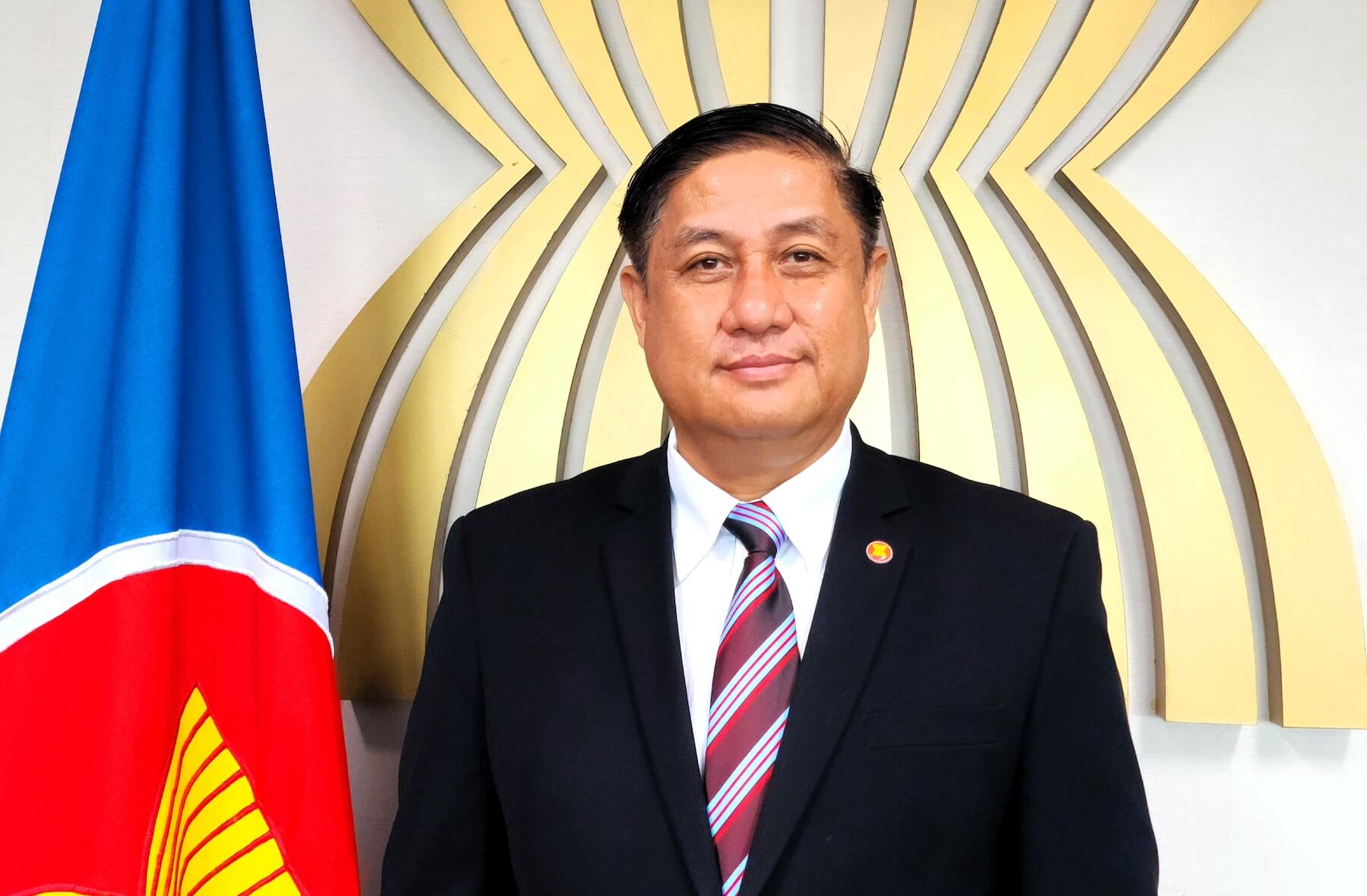



In 2021, an online petition called #LindungiKurir, revealed troubling work conditions of Indonesian couriers. It quickly went viral. The petition stated that these platform workers were often verbally and physically threatened by Cash On Delivery (COD) customers while receiving only 2,000 Indonesian rupiah (less than a quarter of a dollar) for each package delivered to customers’ doorsteps.
As the news spread, thousands signed the petition calling for more decent working conditions for the platform workers, and an evaluation of the COD payment schemes.
Thanks to the petition, Indonesia’s Ministry of Manpower invited industry experts and the couriers’ representatives for a dialogue.
Although the ministry has yet to release any new policies related to the petition, the dialogue is seen as a step towards fairer work conditions for gig workers in the country.
Margianta Surahman Juhanda Dinata, or Gian, was one of the young people behind the petition. Since high school, he has collaborated with other young people to raise awareness on many issues, such as tobacco control, gender equality, and mental health.
In 2017, Gian founded Emancipate Indonesia to bring modern slavery issues and the importance of workers’ rights on the spotlight. The 29-year-old shares with The ASEAN ways the youth can help combat abuse and inequality in the fast-changing landscape of work.
“These past years—especially since the pandemic—Emancipate Indonesia has been focusing on Indonesia’s gig economy, especially the workers, commonly referred to as mitra or ‘partners.’
“Initially, the gig economy looked awesome: workers can have a side job to increase their income. But, in reality, many chose to quit their full-time jobs and just depend on their side hustle. In the beginning, they were tempted by various bonuses offered by ride-hailing companies. What started as part-time gigs have now forced the gig workers to work day and night endlessly to make ends meet.

“I believe there was mismanagement from these start-up companies. Meanwhile, legal loopholes have failed to hold these companies accountable for failing to provide job security to their workers, especially those they call ‘partners.’ They treat ‘partners’ as full-time employees by giving them warnings, punishments, or even cutting them off. At the same time, these companies have never given their ‘partners’ their rightful benefits.
“What was once glorified as the beacon of hope for economic growth, the gig economy, has recently shown its unsustainable nature. This is a good time for our government to reflect. Why do we fail to bring in investments that can absorb a labour-intensive workforce with good-paying union jobs?
“Here is where we came in. As a youth movement, we work as a facilitator. We connect those from the grassroots communities. Unions and communities have many constituents; however, they often do not have time to build a campaign and advocacy strategy to deliver their aspirations to policymakers and the government.
“Sometimes we meet with government officials, lobbying them with research and petitions. We also protest on the street—along with other workers—to make sure our voices get heard. We use every lawful method possible.
“I believe that is what the youth movement is supposed to do in Indonesia and ASEAN. Be the bridge: a bridge across generations, a bridge across sectors. We, the young, have creativity, connections, and other skills that can turn something seemingly impossible into a reality.
“For instance, when the #LindungiKurir petition went viral in 2021, the Minister of Manpower’s staff contacted us to discuss it. We followed up on this request with the couriers’ representatives. What began as a dialogue to protect the couriers now has a wider scope to include gig workers in general.
“We also collaborate with numerous anonymous social media accounts, such as @ecommurz on Instagram, to highlight the real aspiration of young workers—from employees of start-up companies to government institutions. I see these accounts as a modern way to unionise, a platform where workers can ‘spill the tea’ on their working conditions and fight for their rights.
“Here is my take on ASEAN youth: we have an ideal imagination about the alternative world. It is preeminent to have this shared dream, shared vision. In the end, youth will ask, how to achieve our vision? What kind of policies should we push? Many times, youth are also a lot more progressive than the institutions or the regions.
“I have been following the ASEAN youth movement since it closely relates to my work. We can see that despite all of our limitations, ASEAN youth are doing the best they can. That is the most admirable.
“Youth events, such as the ASEAN Youth Dialogue, undoubtedly have a positive impact. It can open networking opportunities and collaboration across nations. Above all that, the most critical aspect is achieving meaningful youth participation. Youth should fully understand why they are there, what kind of aspiration they are voicing, and what kind of follow-up they could seek.
“ASEAN should involve youth from the pre-event up until the post-event. Meaningful youth participation. The event should be built on a sustainable, detailed and inclusive foundation. If this is done, the output will be sustainable.”
Interviewed by Ixora Tri Devi. The conversation has been condensed and edited for clarity. The views and opinions expressed in the text belong solely to the interviewee and do not reflect the official policy or position of ASEAN.








